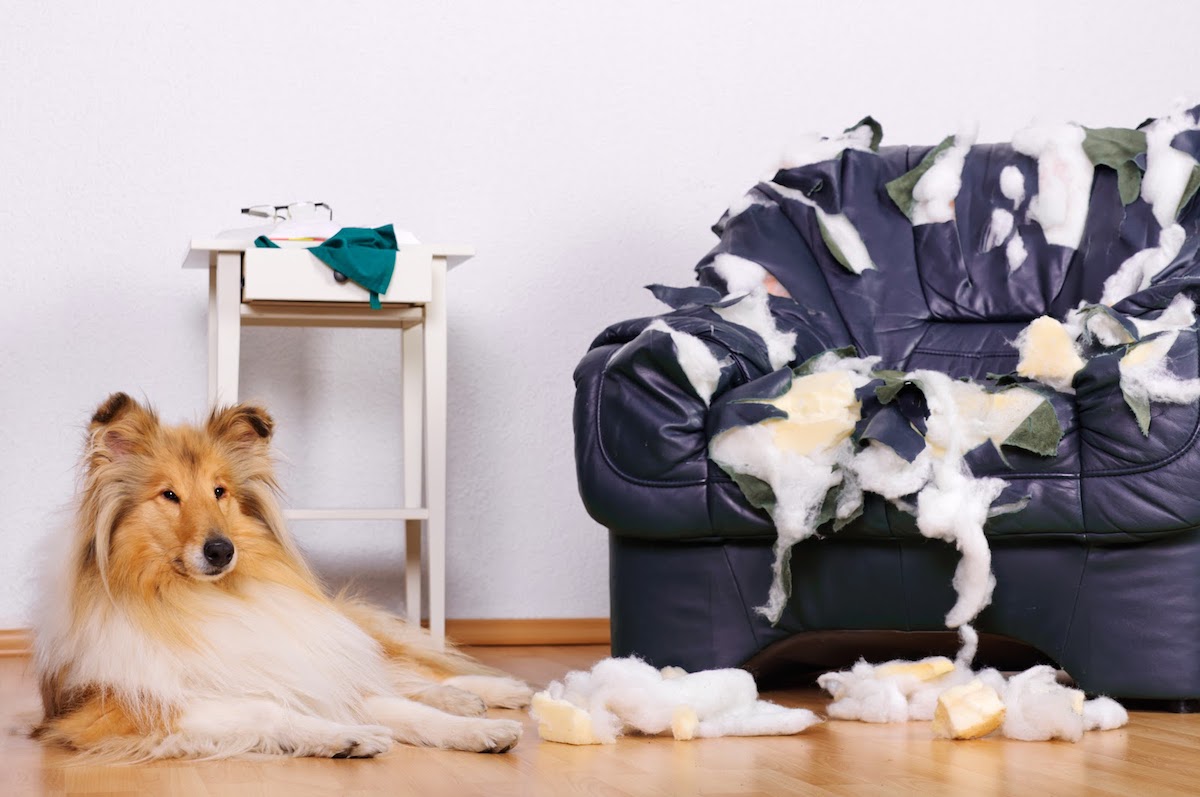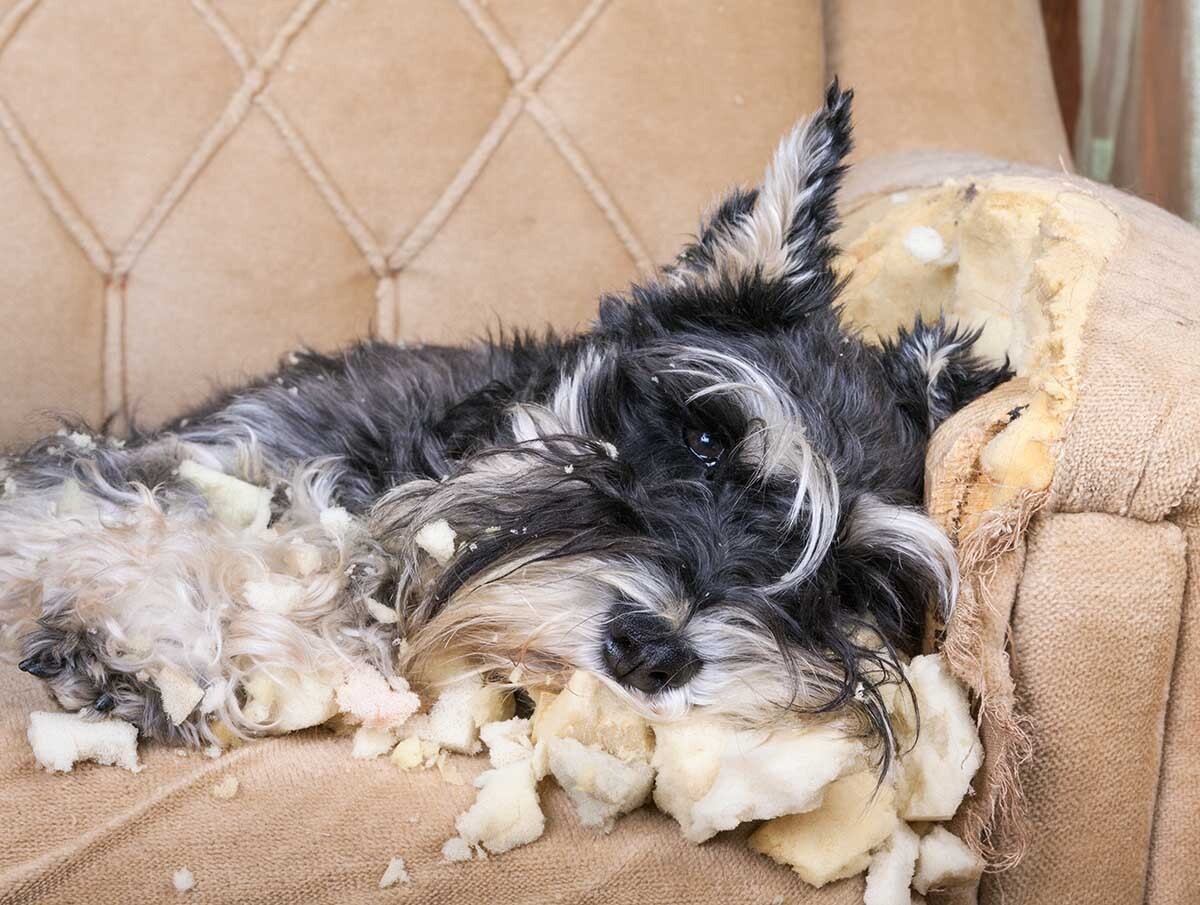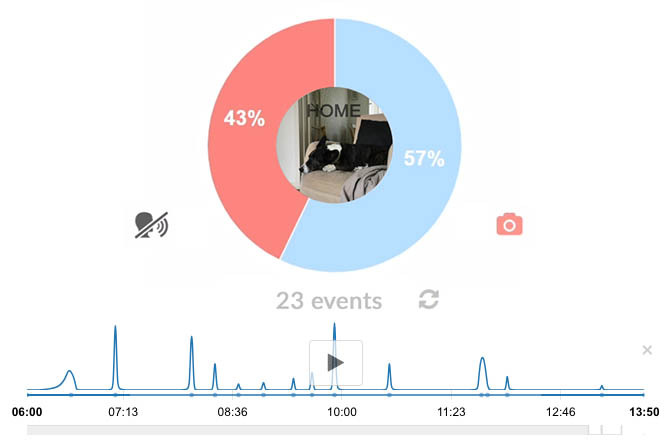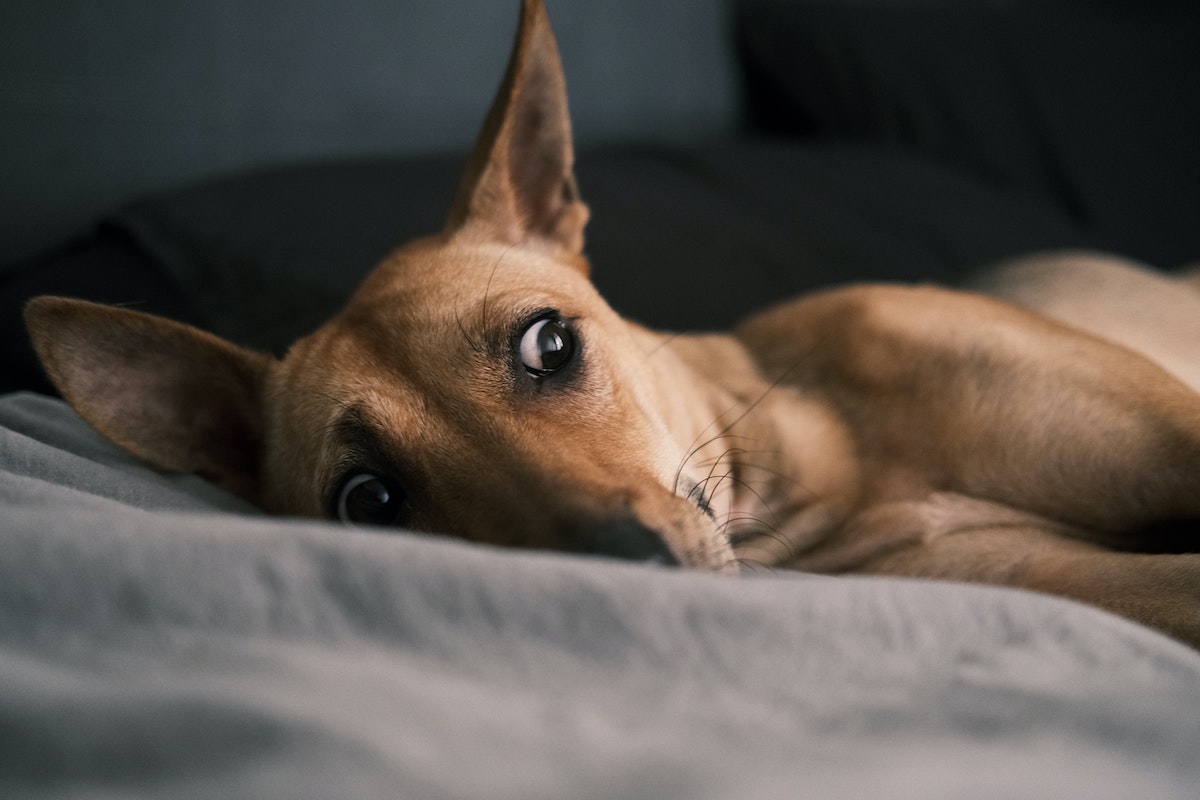Indoor peeing accidents are a common symptom of separation anxiety in dogs. If you notice changes in your adult dog's house training skills, you should have the dog examined by a veterinarian before drawing any other conclusions.
Puppies are not yet physiologically capable of holding it in and should first be taught proper house training. Factors that influence house training encompass breeder and owner actions, the dog's breed, individual development, the season the puppy was born, and their living environment. Becoming fully house trained takes time, and it's normal for a puppy's house training skills to fluctuate during their early development.
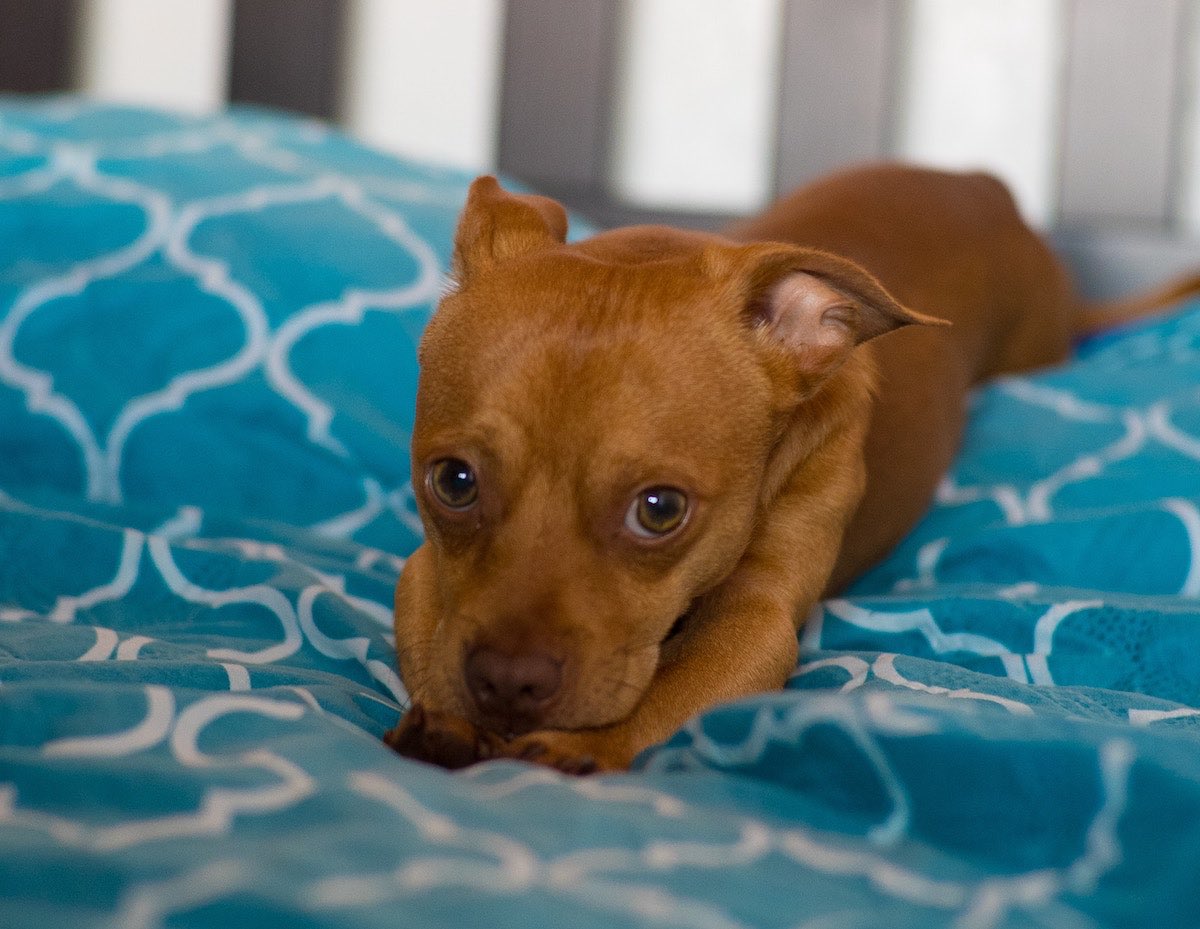
First Things First - Health
Why is an adult dog suddenly peeing indoors? It's crucial to first rule out any underlying health issues. Changes in a dog's appetite, drinking habits, or urination patterns can be linked to various illnesses, such as diabetes, kidney disease, bladder stones, or urinary tract infections. In older dogs, urinary issues might also result from cognitive changes similar to human memory disorders. If an adult dog is experiencing housebreaking problems, especially if they were previously housebroken, the first step should be a visit to the veterinarian.
Learning, Exercise, and Feeding
An adult dog may not be fully house trained due to its background or inadequate training. It might have also developed a preference for a specific type of surface to eliminate on as a puppy.
House training issues can arise when a dog isn't taken outside to relieve itself often enough. Walks may not be long enough for the dog's bladder to empty completely. Particularly for male dogs, the bladder often doesn't empty in just one urination session.
Another important factor to consider is the dog's diet. If the food provided isn't suitable for their digestive system, the dog may feel uncomfortable all the time. If the dog experiences itching, recurrent ear infections, changes in coat, or other visible skin changes, it's important to consult a veterinarian to rule out atopic and food allergies. Sometimes maintaining a diary for two weeks can help in resolving house training issues. The diary should include feeding times, the type and amount of food given, water intake, outdoor time and duration, as well as any indoor accidents.
Hormonal factors (such as a female dog's heat cycle), neutering, spaying, natural marking behavior in dogs, aging, or medication can also impact house training.
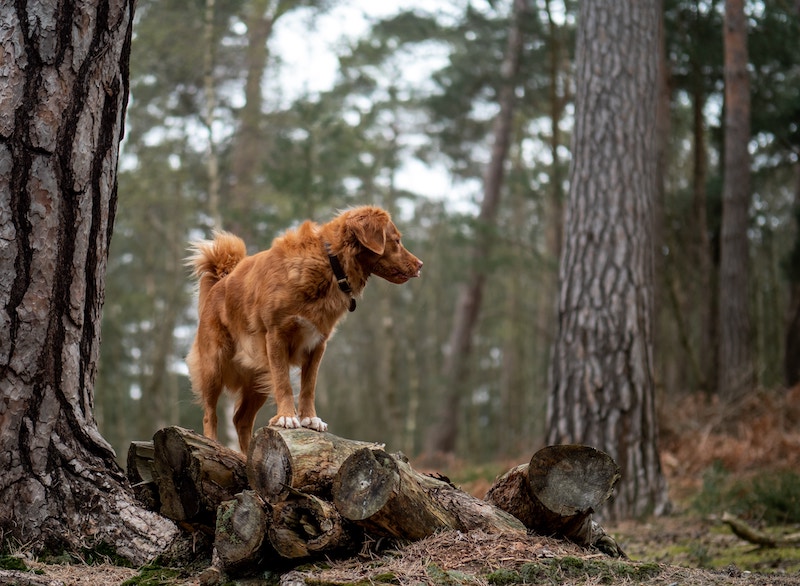
Could stress be the cause?
The underlying cause of indoor accidents may be stress in the dog. It's worth considering if the family schedule and, consequently, the familiar routines for the dog have recently changed. Has there been a move to a new home, changes in the family structure, or shifts in relationships between pets? Perhaps the dog has been frightened by something outside, causing it to prefer doing its business inside. For example, for a rescue dog, going outside altogether may initially be so frightening that the dog cannot do its business outside. Stress can also result from pleasant events if the dog doesn't have enough time to recover and rest properly. Although stress is the most likely reason for an adult dog's indoor accidents, it's worth examining changes in the dog's daily life. This information can be helpful when a veterinarian is assessing the overall situation.
A dog that is stressed from being alone may be in constant motion for several hours, panting, drooling, or chewing, which is why it may also drink more. Some dogs might try to alleviate their anxiety by drinking excessively. A stressed and tired dog may not be able to hold itself as usual. If the dog only has accidents indoors when alone, recording a video can help to get an overall picture of the situation.
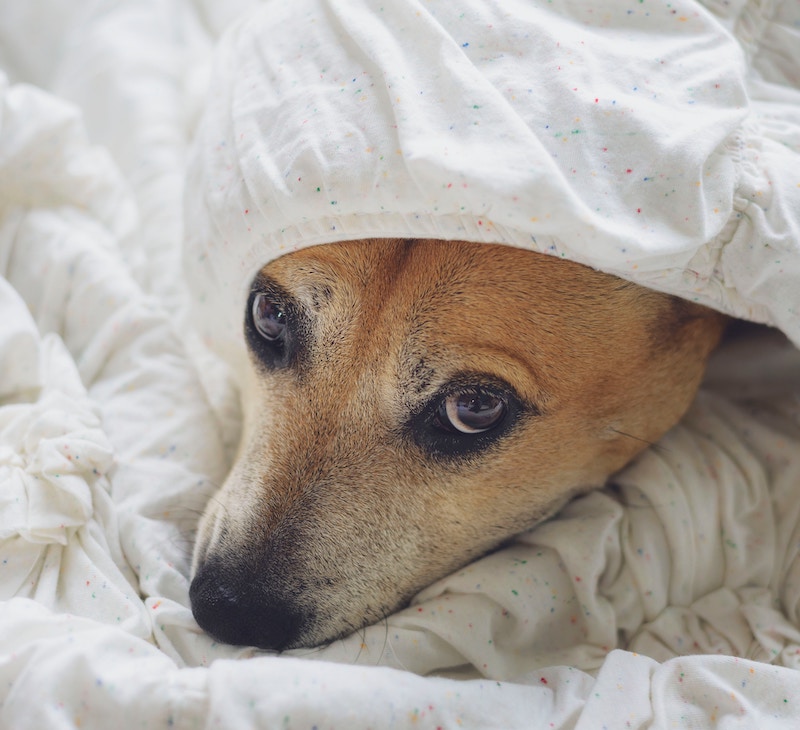
Annoying dog pees on the bed?
Especially when it comes to housebreaking problems, humans tend to take the dog's behavior personally. The dog, unlike humans, does not know that going potty inside is inappropriate. If the dog has been housebroken before, then the reason for the change must be investigated. Please keep in mind that dogs rarely have the opportunity to decide for themselves when they need to go outside to relieve themselves.
Punishing the dog in any situation is psychologically and medically harmful to the dog and is likely to exacerbate all behavior problems. If you scold the dog for peeing inside, the dog may learn that peeing in front of humans is not a good thing. As a result, the dog may start urinating secretly when humans are not around.
When the cause of the problem is being investigated, you can reduce accidents by safely limiting the dog's access to certain parts of the apartment with a gate. If you do not want the dog to jump into your bed, you can provide it with a comfortable and easily washable bed at floor level. In any case, the excrement should be cleaned thoroughly so that the smell does not attract the dog - or other dogs in the family - to pee in the same spot again. If the vet does not find any health reasons for the previously housebroken dog's change in behavior, it is worth exploring the issue from a training perspective. The most likely cause of the change is that the dog is anxious when left alone. An adult dog does not usually lose its housebreaking skills unless it is already aging and suffers from, for example, dementia in old age.
Putting the dog in a cage is not a suitable option for preventing accidents. It is harmful to the dog's psyche, health, and overall well-being - in addition, it is prohibited by some animal welfare laws. Digital Dogsitter also recommends an approach that supports the dog's well-being in this case, namely, investigating the real reasons behind the behavioral problem. Based on the footage recorded by Digital Dogsitter, you can, for example, determine the time of the accidents, which helps you solve the problem.
 Deutsch
Deutsch English
English Español
Español Français
Français Italiano
Italiano 日本語
日本語 Português
Português Suomi
Suomi Svenska
Svenska
